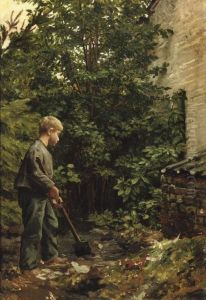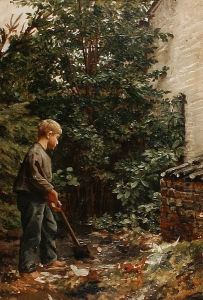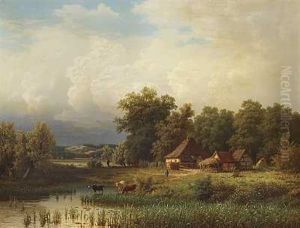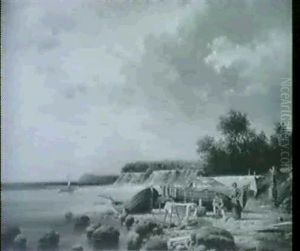Georg Genschow Paintings
Georg Genschow, born on March 6, 1881, in Berlin, Germany, was a notable figure in the realms of acting and theater during the early to mid-20th century. His contributions to the performing arts, particularly in Germany, have made him a respected name among theatre practitioners and historians. Despite the challenges posed by the political and social upheavals of his time, including both World War I and World War II, Genschow managed to carve out a significant career in the arts.
Genschow's early life was steeped in the cultural vibrancy of Berlin, an environment that undoubtedly influenced his later career choices and artistic endeavors. Details about his early education and initial forays into the world of acting are scant, but by the early 1900s, he had begun to establish himself as a talented actor and director within the German theatre scene. His work during this period was characterized by a keen sense of dramatic interpretation and a dedication to the craft of performance, attributes that would define his career.
Throughout the 1920s and 1930s, Genschow's reputation grew, and he became associated with several significant theatre productions in Germany. His ability to navigate the complexities of various roles and genres, from classical to contemporary, earned him accolades from both audiences and critics alike. However, the rise of the Nazi regime and the onset of World War II had a profound impact on the cultural landscape of Germany, affecting artists and performers in myriad ways. Despite these challenges, Genschow continued to work, although the specifics of his activities during this period are less well-documented.
After the war, Georg Genschow played a role in the reinvigoration of the German theatre scene, participating in the rebuilding of cultural life in a country devastated by conflict. He remained active in the theatre until his later years, contributing to the arts both as an actor and as a mentor to younger generations of performers. Georg Genschow passed away on August 9, 1958, in West Berlin, leaving behind a legacy of artistic achievement and resilience.
Throughout his career, Genschow's work reflected the tumultuous times in which he lived, and he is remembered for his contributions to the survival and revival of German theatre in the 20th century. Though not as widely known internationally as some of his contemporaries, within Germany, his efforts in the performing arts are celebrated, and his influence on the theatre of his time remains significant.




